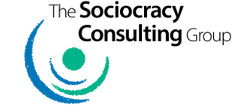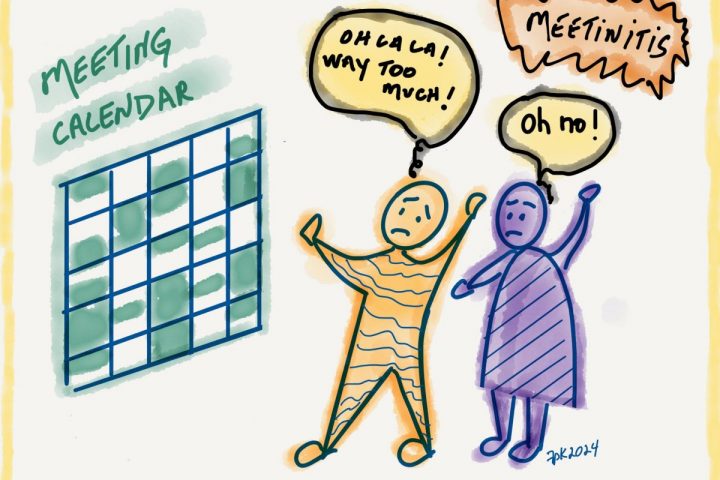Why we ask for objections to determine consent
Confusing the means with the end

The Sociocratic Circle-organization Method (SCM) defines consent as the absence of objections. Crucially, it also makes clear that objections are welcome and encouraged, because they provide valuable feedback regarding the proposal under consideration. Raising relevant objections is a beneficial behavior – an opportunity, and also a responsibility.
The definition of consent as absence of objections is implemented quite simply: by asking for objections! Because if there are none, we have consent.
It happens, however, that some people confuse the outcome of having consent with the means of determining consent (asking for objections). This usually appears in one or both of two ways:
- Circle members say “consent” or “I consent” instead of “no objections.”
- The facilitator asks “Do you consent?” instead of asking “Do you have any objections?”
These differences are not trivial. Most of us live a power-over culture where, in too many contexts, those holding power regard “objections” as negative and detrimental, rather than positive and beneficial. Our lifetimes of social habituation to these beliefs and behaviors are largely implicit, and rarely vanish overnight or without a fight.
Which is why we may find ourselves uncomfortable asking, or answering, the straightforward question “Do you have any objections?” To ease our discomfort, we may decide that since our desired outcome is consent, we can just ask for consent. Isn’t that a lot more comfortable? It may be – but when making important decisions, we need feedback (objections) more than we need comfort!
Feeling the difference
There is a non-trivial difference between the psychology of “consent” and “objection.” Asking for consent is essentially asking “Do you agree?” The question is not looking for trouble (objections), and may be seeking to avoid trouble (objections). It is too often used by those uncomfortable with what they perceive as conflict (objections). Framing the question – or the answer – as “agreement” is also used by those seeking to get their way by proposing – subtly insisting on, even – agreement instead of objections. Will one “go along” with what is proposed, and not make a fuss (object)?
Consider “Do you agree?” in comparison to “Do you have any objections?” Psychologically, these are fundamentally different questions.
When I’m working with a group, I offer a simple exercise around this difference. Especially if there are people in the group explicitly or implicitly expressing discomfort with asking for, or expressing, objections (I see this come up more often and/or more strongly in selections of people for roles than in processing other proposals; it is also organization- and context-dependent).
I invite everyone to close their eyes and imagine they are at the point of making a decision in a group, maybe a very important one, maybe contentious or challenging in some way. They can recall a past decision, visualize an upcoming decision, or make one up that fits the invitation. Any of those imaginings will work for the purposes of the exercise.
Next I invite them to release any distracting thoughts, focus on the decision they are imagining, tune in to their body and mind, and notice what they experience internally – thoughts, feelings, body responses, etc. Then I say one of “Do we all agree?” or “Do you agree?” or “Do you consent?” Then I ask them to remember what thoughts, feelings, and body responses they noticed, including briefly writing them down.
After that we start over – bring back to mind the same imagined decision, release distracting thoughts, reset to neutral, tune in and notice your thoughts, feelings, body responses etc. to what I say next. Then I say one of “Are there any objections?” or “Do you have any objections?”
Most everyone willing to share their experience with the group will report a non-trivial difference in thoughts, feelings, and body responses. What matters first of all is noticing that difference, if they experience one.
What also matters is what they might learn about themselves, each other, and their group dynamics from noticing how they experience each of these questions differently. It’s rare to be in a group that makes decisions together for some length of time without experiencing some forms of avoidance, manipulation, implicit power, coercion, and so on. Often enough, people will have past experiences they can relate to this exercise.
Patterns of avoidance
I most often see a tendency to avoid the language and practice of objections in groups that have one or more of the following as true:
- They are conflict-averse and experience “objections” as conflict rather than as feedback.
- Implicit and/or explicit power dynamics make it “unsafe” to raise objections.
- Some prior injunction (usually subconscious) exists against “objecting.” It’s “not polite,” it “will hurt someone’s feelings,” it’s “just not OK,” and so on.
- Some prior life experience leads them to fear “objecting” and “objections.”
- They would rather be “nice” than “real.”
- They equate “objecting” with “complaining,” “whining,” not “being a team player,” being the “problem person,” and similar external and/or internal injunctions.
- They simply never thought about “objections” as beneficial feedback.
We are more likely to get what we want if we ask for it clearly and directly. It is the facilitator’s job to solicit objections, and the responsibility of all circle members to raise objections if they have any. We are bound to miss out on valuable objections (feedback), unless we ask for them!
For support with effective use of objections and consent in your organization, contact us for a free consultation.

John Schinnerer is a whole systems designer and culture change advocate working with all aspects of human organizational systems, and a founding member of The Sociocracy Consulting Group.




